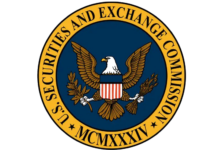The European consolidated tape should be paid for according to the users application of the data. That was the positions of Jerome Reboul managing director of Policy and International, at French regulator, Autorité des marchés financiers (AMF).
Speaking at TradeTech in Paris, Reboul noted that the consolidated tape provider (CTP) should have the freedom to set pricing based on use, so that other service providers could build commercial offerings based on its output.

“The CTP should be able to price the data based on the actual value that market participants that will access the data extract from that value,” he said. “Based on different categories of users – The Level 1 Text is very clear that it excludes any discriminatory pricing in the sense that a homogenous category of users should face the same pricing, there’s a fundamental principle, but it would be completely anti-competitive and counterproductive in terms of viability of the consolidated tape to put too many constraints on the pricing structure that the CTP will be able to use.”
In a wide ranging discussion on the key regulatory issues impacting European markets in 2024, the tape itself was seen as broadly positive, but limited.

“If it allows me to stop paying what I pay for the data to do my transaction cost analysis (TCA), fine,” said Inés de Trémiolles, global head of trading at BNP Paribas Asset Management. “Will it change best execution? No, because best execution is a journey. It’s not something that you can prove, and you try to provide as much data as you can. It could be one reference price, but the consolidated they will not have the notional or the size. In equities you have TCA models today that forecast the market impact of a trade given a certain size. I’m not sure if by the time we get the TCA consolidated tape, in equities we will get that notion of ‘expected impact’.”
She voiced greater concern over the shift to T+1 settlement in the US, which is creating major operational challenges for buy- and sell-side firms.
“We hope we are prepared, we’re working very hard. [The shift] has brought adjustments, operational issues, … when the change takes place we will have an unbalanced situation, which is a real headache for everybody for managing your assets. If you’re managing global assets, you still have T+2 in Europe so you will have a mismatch between the fund lifecycles. Let’s not forget that most of the European funds still have a T+3 settlement cycle. Maybe it’s wishful thinking, but I’m hoping that we will have US traders stay a bit longer in the afternoon to provide pricing on FX after 5pm.”
©Markets Media Europe 2024




